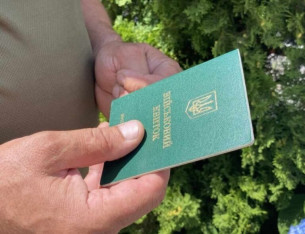Deferral for citizens whose parents or spouse's parents have a disability of group I or II
Deferral of mobilization for citizens whose parents or spouses have a disability of group I or II is an important aspect of Ukrainian legislation. This legal mechanism allows maintaining social stability and support for families where one of the parents or loved ones needs constant care due to disability. However, the process of obtaining such a deferral can be complicated, as it requires the availability of relevant documents, compliance with procedures and correct interpretation of the legislation. Therefore, legal assistance plays an important role in this process, ensuring the legality of actions.
Legal stages of processing a deferral for citizens whose parents or spouse's parents have a disability of group I or II
The legal process of obtaining a postponement of mobilization for persons who have parents or parents of spouses with group I or II disabilities consists of several main stages:
- Legal consultation on the registration of Deferral for citizens who have one of their parents with a disability of group I or II or one of the parents of a spouse (husband) from among persons with disabilities of group I or II.
- Collection of documents. The main document that confirms the right to deferment is a certificate of disability of one of the parents or parents of the spouse. In addition, you need to collect documents confirming the family relationship, for example, a birth certificate or a marriage certificate.
- Appeal to the Military Commissariat. After collecting all the necessary documents, the citizen must submit an application to the military commissariat at the place of residence. All collected documents are attached to the application.
- Consideration of the case. The Military Commissariat checks the submitted documents, assesses their compliance with the legal norms and makes a decision on granting or refusing a postponement.
- Obtaining a decision. A citizen receives a written decision of the Military Commissariat. In the case of a positive decision, he has the right to a postponement, and in case of refusal, he can appeal this decision in court.
It is important that each stage is completed correctly in order to avoid refusals or delays in the process.
Under what conditions can the deferral service be provided to citizens whose parents have a disability of group I or II?
Legal assistance in obtaining a deferral for citizens who have one of their parents or spouses with a disability of group I or II can be provided under the following conditions:
- Disability of one of the parents or parents of the spouse. Disability must be confirmed by appropriate medical documents, which testify to the assignment of the I or II group of disability.
- Family connection. A citizen must prove a family relationship with a person with a disability, for example, by providing a birth certificate, marriage certificate, etc.
- Official registration of guardianship or care. In some cases, proof that a citizen is the official guardian or primary caregiver of a person with a disability may be required.
The above conditions are necessary for prompt receipt of the deferral and ensuring its legitimacy.
Under what conditions can the deferral service not be provided to citizens whose parents have a disability of group I or II?

Incorrect processing of documents. Incorrectly executed or missing documents may be the reason for the refusal of the postponement.

Lack of confirmation of family connection. If a citizen cannot prove that he is a close relative of a person with a disability, the deferment will not be granted.

Incorrect information about disability. Lack of proof of disability or doubts about the authenticity of the documents provided may also be grounds for refusal.
How can a person who has a disability of group I or II obtain a deferral on their own?
Independently applying for a deferral for citizens who have one of their parents or one of their spouse's (husband's) parents with a disability of group I or II is possible with the following algorithm of actions:
- Study of legislation. Familiarize yourself with current laws and by-laws governing mobilization and deferrals.
- Consultation with a lawyer. If there are doubts about the correctness of the documents or difficulties with their collection, contact a lawyer.
- Independent collection of documents. Make sure that all documents are completed correctly and fully comply with the requirements of the law. Find out the list of documents for the Deferral of citizens who have one of their parents with a disability of group I or II or one of the parents of a spouse (husband) from among persons with disabilities of group I or II.
Independently applying for a deferral is possible by studying the legislation and correctly collecting the necessary documents. However, even in the case of independent application, consulting a lawyer can significantly facilitate the process and help avoid errors in documents or inconsistencies with the requirements.
Common questions about deferral for persons whose parents have a disability of group I or II
Question
How to find a lawyer for the Deferral of citizens who have one of their parents with disabilities of group I or II or one of the parents of a spouse (husband) from among persons with disabilities of group I or II?
Answer
To find a lawyer who specializes in deferment for citizens with a parent or spouse with a Group I or II disability, there are a few steps to follow: Research the specialty: Look for lawyers or law firms with experience in Social Security or military deferment issues. Recommendations and testimonials: View customer testimonials or ask for recommendations from friends and acquaintances who have already used similar services. Consultation: Contact several lawyers for consultations to assess their knowledge and experience in your particular situation. Verification of qualifications: Make sure that the selected lawyer has the appropriate qualifications and license to practice. Negotiating the terms: Discuss the terms of cooperation, including the cost of services and terms, to avoid misunderstandings in the deferral process.
Question
How much does a legal consultation on the Deferral of citizens who have one of their parents with a disability of group I or II or one of the parents of a spouse (husband) from among persons with a disability of group I or II cost?
Answer
The cost of legal advice on the registration of a deferral for citizens who have one parent with a disability of group I or II or one of the parents of a spouse/husband with a disability of group I or II may vary depending on the region and the experience of the lawyer. Some lawyers may offer free initial consultations and then charge for more detailed help. It is recommended to contact several lawyers to compare prices and terms. It is also worth clarifying whether the consultation includes assistance in preparing documents and submitting them to the relevant authorities.
Question
How much does it cost to apply for a Deferral for citizens who have one of their parents with a disability of group I or II or one of the parents of a spouse (husband) from among persons with disabilities of group I or II?
Answer
Issuance of deferment from military service is free of charge for citizens who have one of their parents or their spouse's parents (husband) with a disability of group I or II. Usually, in order to receive such a deferment, it is necessary to provide documents confirming the disability of the father or the father of the wife (husband). It is important to consider that the procedure may include the collection of documents and medical certificates, which may have certain costs. To get accurate information, you should contact the military commissariat or legal advice. Checking for current changes in legislation can also be helpful.
Cost of the deferral service for citizens whose parents have a disability of group I or II
The price of the service for obtaining a deferral for citizens whose one of their parents or spouse's parents has a disability of group I or II may depend on several factors. Firstly, this is the complexity of the case, in particular the need to collect specific documents and additional consultations. Secondly, an important aspect is the experience and qualifications of the lawyer, because professionals with more experience can provide services at higher rates. The third factor is the urgency of the service - if the case requires an urgent resolution, the cost of services may be higher. The region can also affect the price, as prices in different cities can vary depending on local market conditions.
ConclusionReceiving a deferral for citizens whose parents or their partners' parents have a disability of group I or II is a right regulated by clear legal norms. However, in order to properly arrange this deferral and avoid possible mistakes, it is important to seek qualified legal assistance. A specialist will help to properly arrange the documents, take into account all the nuances of the legislation and ensure a quick consideration of the application by the authorities.




































